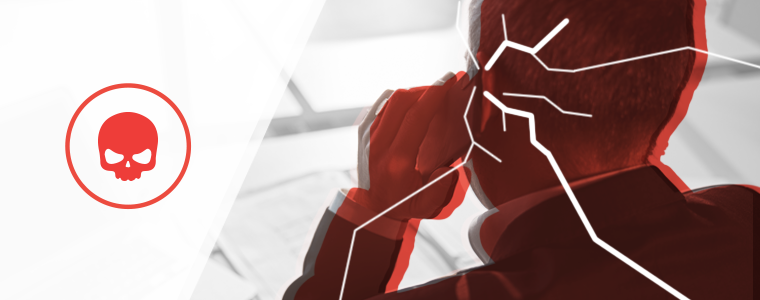How to Properly Manage Passwords
Passwords are at the forefront of ensuring your personal and professional data remain secure — even if updating them every few months sometimes feels like a chore.
It’s widely known that you shouldn’t use the same password across multiple platforms. However, most people have dozens of online accounts that require passwords. Between work accounts, personal emails, entertainment subscriptions, medical portals, online stores, and various other applications, you likely have numerous passwords to manage. How is it possible to curate your passwords in a way that you remember them — but without hackers figuring them out?
When it comes to keeping your passwords strong, unique, and manageable, we’ve got you covered with our expert tips on how to manage passwords.
Why Do You Need a Strong Password?
Before getting into detail about how to maintain strong passwords, it’s important to understand why they’re necessary. It can be easy to brush off warnings, especially when you think something like an online shopping login could be harmless if hacked. However, password security is essential, no matter the account.
More often than not, an attack on your personal information isn’t about you in particular — it’s about using your information to access larger platforms for wider-scale attacks. If a hacker gains access to a platform like your banking app or your work email, the system can then be potentially exploited by others.
On the other hand, a hacker could be after your specific data, such as money in your checking account. In either situation, it’s essential to keep your information secure, and your password is the primary way to do so.
How to Manage Multiple Passwords
Creating a password that’s hard to guess but easy to remember seems like quite the contradiction — especially when you’re trying to formulate dozens of passwords. With the help of a password manager, you can keep your passcodes, PINs, and any other confidential information stored under one login. Once you have everything organized in one place, there are several other things you can do to maintain a password management strategy.
Here are a few of the best ways to manage passwords.
1. Use a Password Manager
A password manager is exactly what it sounds like — it manages all your passwords in one location. The great thing about these programs is that you only have to remember one master password to access all your others. In many instances, you can also accompany your passwords with notes, store credit card information, or log in to your master account by using other methods such as your fingerprint.
Password managers in a variety of “flavors” including online/cloud based, on a piece of hardware — such as a USB drive — or through locally installed applications. Agio recommends online/cloud based for the greatest flexibility, Different types of password management strategies are suitable for varying situations. No matter how you decide to store all your logins, you’ll find it’s much easier to manage them when you don’t actually have to remember them all.
2. Change Passwords Frequently
Once your passwords are stored under a master account, another way to keep your information secure is by updating your passwords frequently — the longer a password is around, the more likely it is that hackers can get their hands on it. Agio makes it easy to ensure your team’s passwords are always up to date through our proactive end-user support services.
3. Don’t Save Passwords to Your Browser
When logging into a new site, you might get the pop-up message that reads, “Do you want to save your password?” The answer you should be giving from now on is no. The browser you’re using may have a function that allows you to view saved passwords, but you can never be sure about the security of said features. While it can be a convenient option, it’s one that’s hit-or-miss.
4. Set up Two-Factor Authentication
If you have the option to set up two-factor authentication (also referred to as 2FA or multifactor authentication), you should do so. This requires the person logging in to provide the username and password as well as another item like a code sent to your phone or a security question. Even if you feel confident in the strength of your passwords, two-factor authentication adds another layer of security to your logins, making it nearly impossible for hackers to access your accounts. Agio’s cybersecurity team considers 2FA an essential basic practice. (Read more about our Brilliance in the Basics.)
Tips for Strong Passwords
Even if you follow best practices regarding password protection, it’s still important to create passwords that are strong and unique. By following these tried and true techniques, you can keep your passwords’ vulnerability to a minimum.
1. Avoid Using Names, Birthdays, and Personal Numbers
Using information that can be found online — like a family member’s name, phone numbers, or addresses — should never be used in your passwords. If it can be found online and linked to you, a hacker will be able to connect the dots and use it to their advantage.
Also, never use important numbers or phrases linked to your identity in any way. If you use your social security number as your credit card PIN, and that PIN gets hacked, you now have even more sensitive information that’s been uncovered.
2. Use a Mix of Numbers, Letters, and Special Characters
To add extra depth to your passwords, use a mix of numbers, special characters, and a combination of uppercase and lowercase letters. This variation makes it less likely that hackers will be able to work through the possible variations.
3. Sprinkle Special Characters Throughout
On that same note, make sure your special characters are distributed evenly throughout. It’s common to use special characters bunched together at the very beginning or end of your password. For example, maybe you’ve come up with a great acronym and worked out how to use some numbers in place of letters. It’s also easy to tack an exclamation point onto the end. But the less common the password, the harder it’ll be for hackers to do their guesswork.
4. Avoid Changing One Character at a Time
When it’s time to change your passwords, make sure to add significant variations. If you only change one special character or change an uppercase letter to a lowercase one, it’s more likely to be hacked due to the historical pattern.
5. Don’t Reuse Passwords
It can be convenient to pull last quarter’s Facebook password and make it your new Twitter password when you’re out of ideas. But the more you keep your logins completely fresh, the less likely hackers are to infer from other platforms.
6. Make It Long
Across the board, longer passwords are harder to guess. That’s because as more characters get tacked on to a word or phrase, the possible combination of letters, numbers, and special characters increases exponentially.
Ask the Security Experts at Agio
If you’re looking for extra protection for your passwords and professional applications aside from these password protection methods, Agio can help. We offer intelligent IT for businesses in a variety of industries. In addition to our advanced services, Agio ensures your administrative and system passwords follow best practices at their core.
To find out how you can better protect your company’s applications and enhance the security of the individuals that work there, contact a member of our team and stay up to date with cybersecurity trends and tips by subscribing to our blog.
Share post
Featured Posts
Connect with us.
Need a solution? Want to partner with us? Please complete the fields below to connect with a member of our team.



